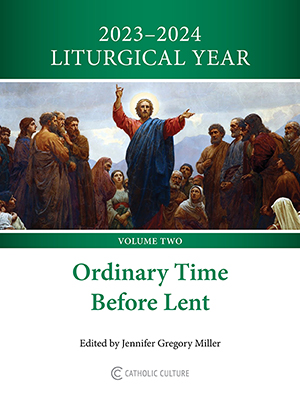Catholic Dictionary
Find accurate definitions of over 5,000 Catholic terms and phrases (including abbreviations). Based on Fr. John Hardon's Modern Catholic Dictionary, © Eternal Life. Used with permission.
Random Term from the Dictionary:
DONATISM
Originally a schism and then a heresy of the fourth and fifth centuries, claiming that the validity of the sacraments depends on the moral character of the minister; also that sinners cannot be members of the Church, nor can they be tolerated by the true Church if their sins are publicly known. The Donatists came into existence in Africa during the disorders following the persecution under Diocletian (245-313). A man named Caecilian was consecrated Bishop of Carthage in A.D. 311, but a group of rigorists claimed that he was not a valid bishop because his consecrator, Felix of Aptunga, had been a traditor, i.e., an apostate. The objectors were supported by the bishops of Numidia, who proceeded to consecrate Majorinus as a rival to Caecilian. Majorinus was soon afterward succeeded by Donatus (fourth century), from whom the movement took its name. The claims of the sect were condemned by Pope Miltiades (310-14), and by the Council of Arles (314). When civil authority also opposed the Donatists, their churches were seized and many were exiled. Yet Donatism did not disappear until the Moslem invasion of Africa in the seventh century.







